
Atiu: The Untouched Gem of the Cook Islands
Atiu, one of the lesser-known islands in the Cook Islands, offers an authentic and unspoiled travel experience. This island, often referred to as Enuamanu or 'land of the birds', is rich in natural beauty and cultural heritage. Unlike the more commercialized islands, Atiu provides a serene escape where visitors can immerse themselves in the island's pristine environment and traditional way of life. Explore the island's lush forests, caves, and stunning coastline. Take a guided tour through the Anatakitaki Cave, home to the rare Kopeka bird, which navigates using sonar like a bat. Wander through the island's coffee plantations and sample some of the finest locally-grown coffee. For those interested in history and culture, visiting the island's ancient marae (sacred sites) will offer a glimpse into the island's storied past. Atiu's beaches are just as breathtaking as its inland treasures. Enjoy the tranquil and secluded white sandy shores, perfect for relaxation and reflection. The clear waters are ideal for snorkeling, where you can witness the vibrant marine life up close. The local community is warm and welcoming, often inviting visitors to join in traditional celebrations and ceremonies, providing a memorable and enriching experience. Whether you are an adventurer, a history enthusiast, or simply looking to unwind, Atiu offers a unique and captivating journey away from the hustle and bustle of everyday life.
Local tips in Atiu
- Bring sturdy walking shoes for exploring caves and forests.
- Pack reef-safe sunscreen for snorkeling and beach days.
- Carry cash, as ATMs are limited on the island.
- Check with local guides for the best times to visit the Anatakitaki Cave to see the Kopeka birds.
- Participate in local events and ceremonies for a deeper cultural experience.
Atiu: The Untouched Gem of the Cook Islands
Atiu, one of the lesser-known islands in the Cook Islands, offers an authentic and unspoiled travel experience. This island, often referred to as Enuamanu or 'land of the birds', is rich in natural beauty and cultural heritage. Unlike the more commercialized islands, Atiu provides a serene escape where visitors can immerse themselves in the island's pristine environment and traditional way of life. Explore the island's lush forests, caves, and stunning coastline. Take a guided tour through the Anatakitaki Cave, home to the rare Kopeka bird, which navigates using sonar like a bat. Wander through the island's coffee plantations and sample some of the finest locally-grown coffee. For those interested in history and culture, visiting the island's ancient marae (sacred sites) will offer a glimpse into the island's storied past. Atiu's beaches are just as breathtaking as its inland treasures. Enjoy the tranquil and secluded white sandy shores, perfect for relaxation and reflection. The clear waters are ideal for snorkeling, where you can witness the vibrant marine life up close. The local community is warm and welcoming, often inviting visitors to join in traditional celebrations and ceremonies, providing a memorable and enriching experience. Whether you are an adventurer, a history enthusiast, or simply looking to unwind, Atiu offers a unique and captivating journey away from the hustle and bustle of everyday life.
When is the best time to go to Atiu?
Iconic landmarks you can’t miss
Punanga Nui Market
Experience the vibrant culture and flavors of Rarotonga at Punanga Nui Market, where local produce and crafts come alive every Saturday.
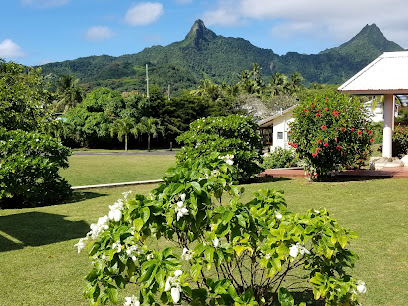
Muri Night Markets
Discover the flavors of the Cook Islands at Muri Night Markets, where vibrant food stalls and local culture come together in a breathtaking setting.
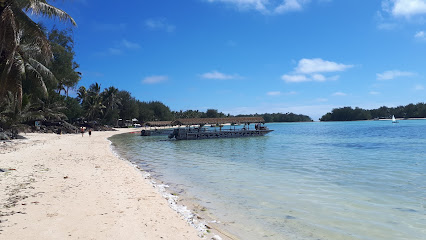
Te Vara Nui Village
Immerse yourself in the rich culture of the Cook Islands at Te Vara Nui Village, where tradition meets breathtaking natural beauty.
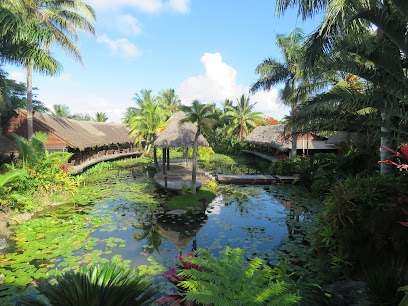
Maire Nui Gardens and Cafe
Discover tranquility and culinary delights at Maire Nui Gardens and Cafe in Rarotonga, a hidden gem for nature lovers and food enthusiasts.
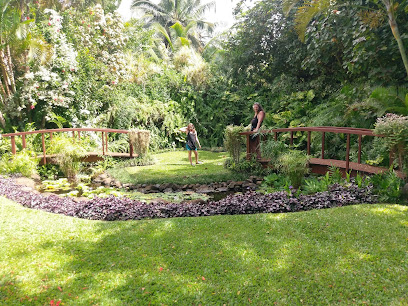
Aitutaki
Experience the breathtaking beauty and tranquility of Aitutaki, a hidden gem in the Cook Islands, known for its stunning lagoons and pristine beaches.
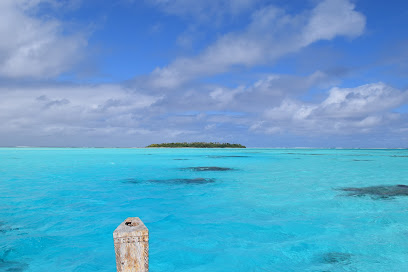
Raro Buggy Tours
Explore the stunning landscapes of the Cook Islands with Raro Buggy Tours, the ultimate outdoor adventure for thrill-seekers and nature lovers.
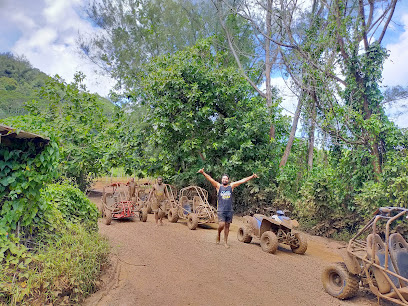
Ocean Toa Cook Islands
Explore the breathtaking beauty and culture of the Cook Islands with Ocean Toa, your premier tour agency for unforgettable adventures.
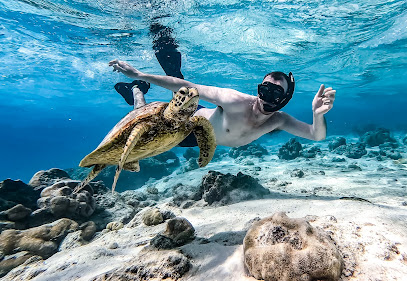
Te Ara Cook Islands Museum of Cultural Enterprise
Experience the vibrant heritage of the Cook Islands at Te Ara Cook Islands Museum of Cultural Enterprise, where culture and history come to life.
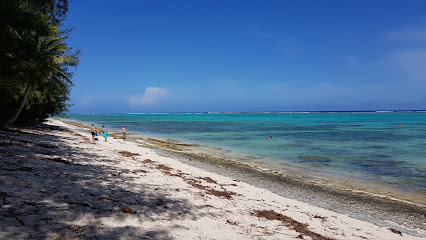
Wigmore's Waterfall
Discover the natural beauty of Wigmore's Waterfall, a serene swimming lake surrounded by lush greenery in the stunning Takitumu District.
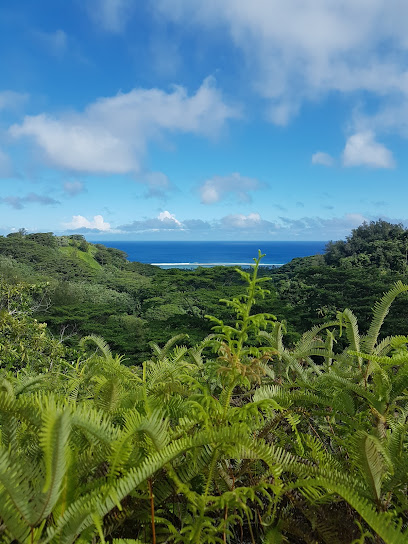
Highland Paradise
Experience the heart of Cook Islands culture at Highland Paradise, where authentic cuisine meets captivating traditions in a stunning setting.
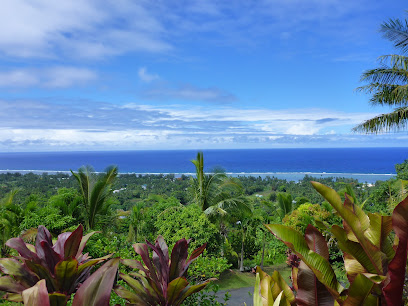
Teking Lagoon Cruises
Explore the stunning Aitutaki Lagoon with Teking Lagoon Cruises, offering unforgettable snorkeling and island-hopping adventures in paradise.
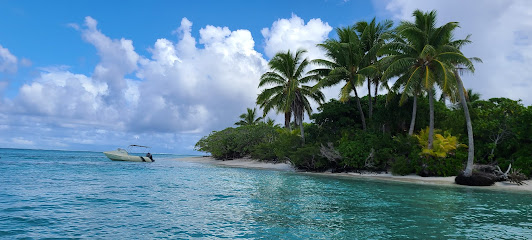
Piraki Lookout
Experience breathtaking views at Piraki Lookout, Aitutaki's scenic gem with panoramic vistas of the lagoon and lush landscapes.
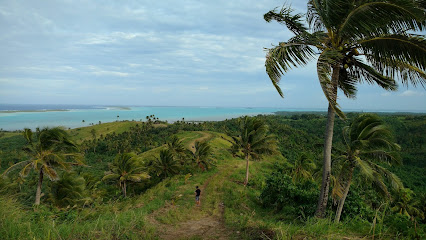
Cook Islands National Museum
Explore the Cook Islands National Museum and immerse yourself in the rich cultural and historical tapestry of the Cook Islands.
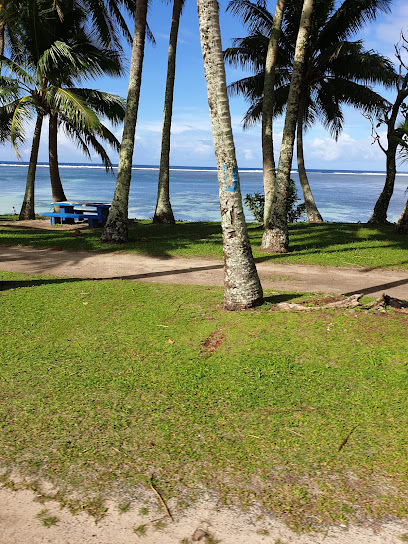
Atiu Island Coffee
Discover the unique coffee culture at Atiu Island Coffee, where local flavors meet breathtaking island beauty in the heart of the Cook Islands.

Te Rua Manga
Explore the breathtaking heights of Te Rua Manga, a stunning mountain peak in Rarotonga, offering panoramic views and unforgettable hiking experiences.
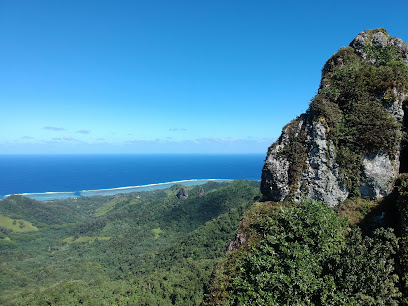
Unmissable attractions to see
Vai Nauri Water Cave
Explore the enchanting Vai Nauri Water Cave in Mitiaro, a natural wonder filled with stunning rock formations and crystal-clear waters.

Three Grottos
Explore Atiu's hidden gems: Discover the stunning coastal beauty and natural rock formations of the Three Grottos near Tengatangi Village.
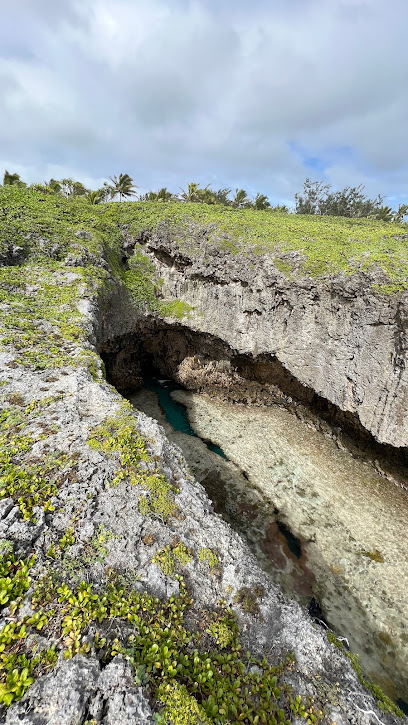
Tarapaku Beach
Discover the tranquil beauty of Tarapaku Beach in Tengatangi Village, where soft sands meet crystal-clear waters for an unforgettable island getaway.
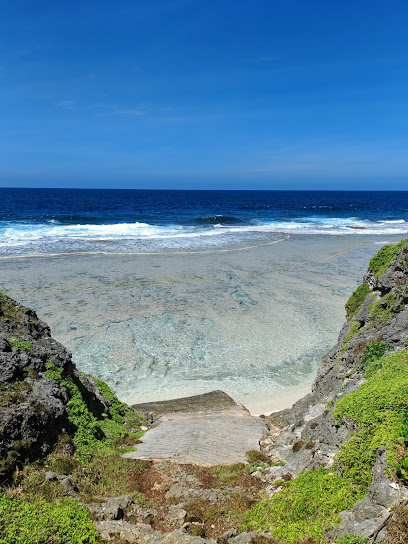
Anareia Beach
Explore the pristine paradise of Anareia Beach in Areora, where golden sands meet turquoise waters for the ultimate tropical getaway.
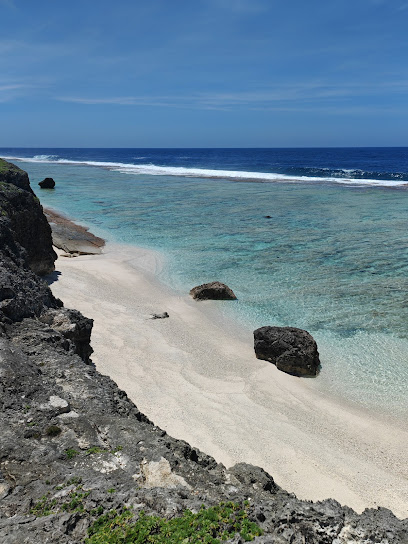
Takauroa Beach
Discover tranquility at Takauroa Beach in Atiu, Cook Islands: white sands, clear waters, and a serene escape from the everyday hustle.
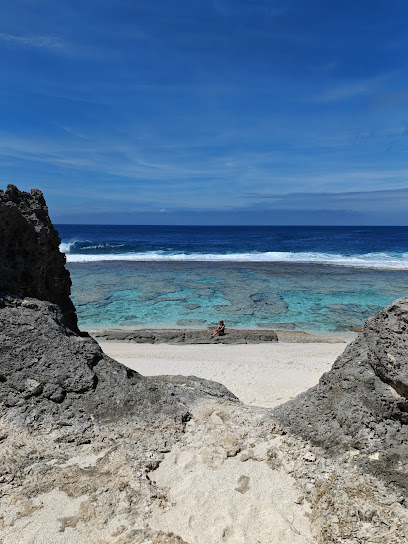
Essential places to dine
The Mooring Fish Cafe
Experience exquisite seafood dining at The Mooring Fish Cafe in Ngatangiia District – where fresh flavors meet stunning coastal views.
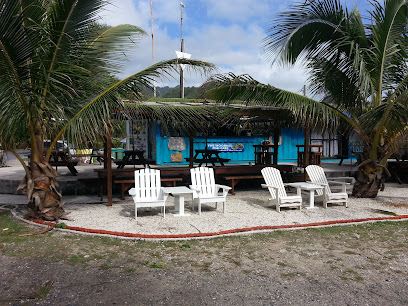
Beluga
Experience paradise at Beluga Café in Arorangi - where local flavors meet stunning views in an inviting atmosphere.
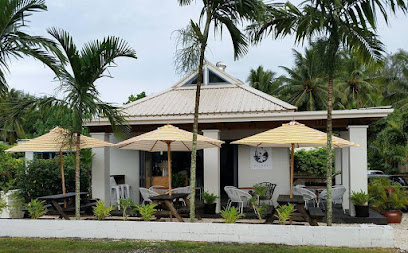
Tamarind House Restaurant & Ukulele Bar
Experience exquisite dining at Tamarind House Restaurant & Ukulele Bar - where local flavors meet tropical vibes in Avarua.
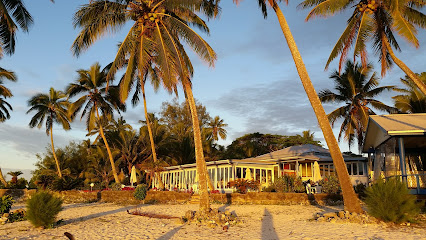
Avatea cafe | Aitutaki Place to Eat | Where to eat Aitutaki
Discover authentic Cook Islands cuisine at Avatea Cafe in Aitutaki – where every meal is infused with local flavors and hospitality.
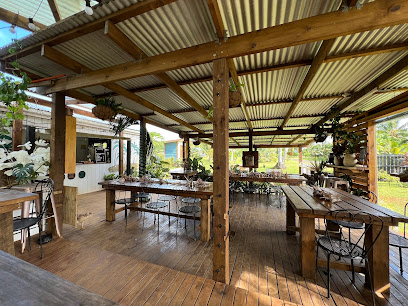
The Waterline Restaurant and Outrigger Beach Bar
Experience culinary delights at The Waterline Restaurant and Outrigger Beach Bar with stunning ocean views in Rarotonga.
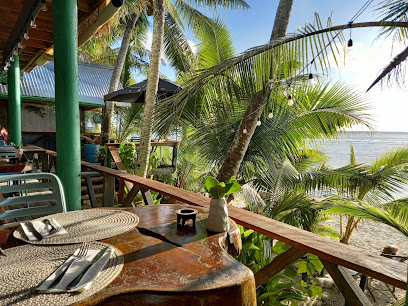
Antipodes rarotonga
Experience the best of local flavors at Antipodes Rarotonga – where exquisite cuisine meets breathtaking views.
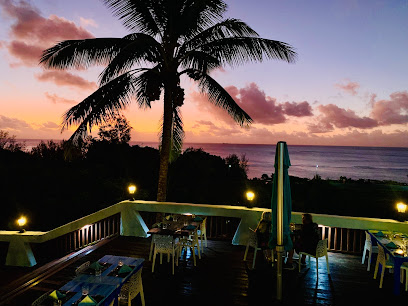
Koru Cafe
Discover Koru Cafe in Aitutaki – where fresh flavors meet friendly faces in a charming island setting.
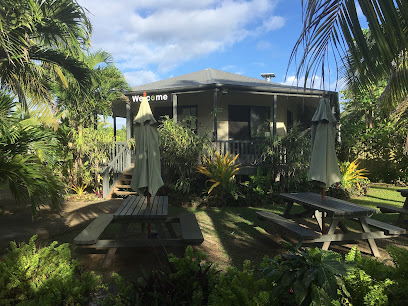
The Boat Shed
Experience the best seafood dining at The Boat Shed in Aitutaki – a culinary delight amidst breathtaking views.
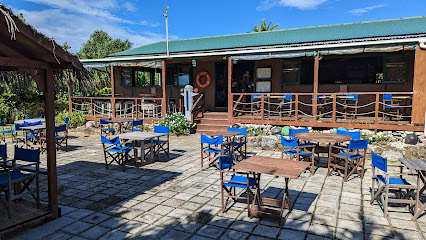
Kikau Hut
Experience authentic Cook Islands cuisine at Kikau Hut in Rarotonga - where every meal feels like a tropical escape.
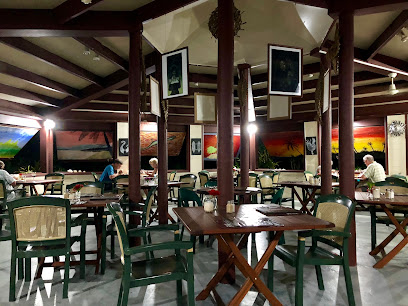
On the Beach Bar and Restaurant
Experience breathtaking ocean views and authentic island cuisine at On the Beach Bar and Restaurant in Rarotonga.
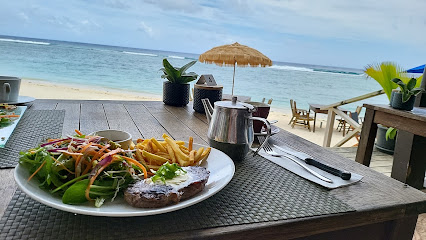
The Lucky Rooster Eatery
Discover the vibrant flavors and artistic charm at The Lucky Rooster Eatery in Avarua – where every meal is an experience.
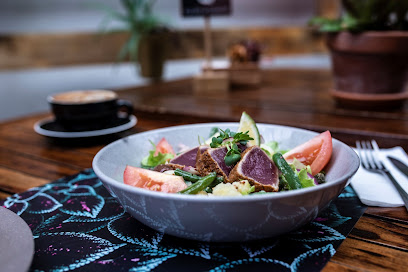
Cafe Ariki
Discover the flavors of Avarua at Cafe Ariki - where local ingredients meet international cuisine in a cozy island atmosphere.
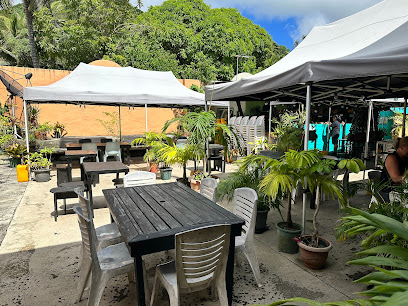
The Lazy Trout Cafe
Experience delightful flavors at The Lazy Trout Cafe in Avarua – where every bite tells a story of Cook Islands' culinary heritage.
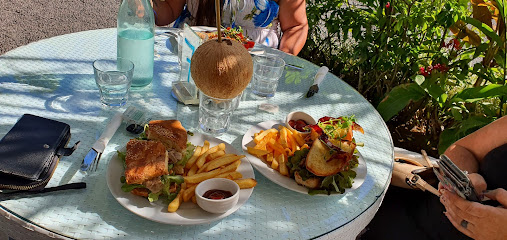
Alberto's Steakhouse and Bar
Experience culinary delight at Alberto's Steakhouse and Bar in Rarotonga—where every steak is grilled to perfection amidst tropical beauty.
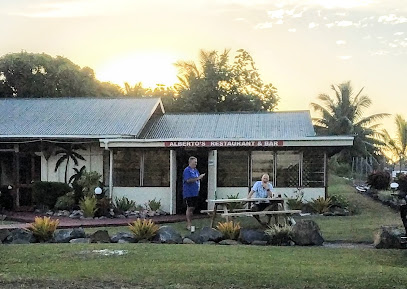
Yellow Hibiscus Resturant
Savor exquisite local flavors at Yellow Hibiscus Restaurant in Rarotonga - a must-visit culinary experience amidst stunning island scenery.
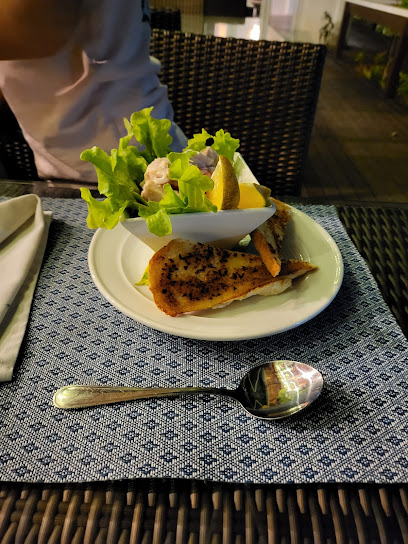
Markets, malls and hidden boutiques
Avarua Shopping Centre
Discover a vibrant shopping experience at Avarua Shopping Centre, blending local culture with international flair in the heart of the Cook Islands.
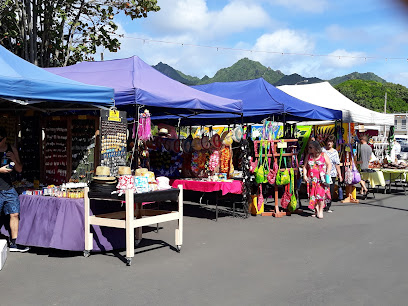
Ollie's Surf Gear
Discover the surf lifestyle at Ollie's Surf Gear in Avarua, where quality meets style in beachwear and accessories.
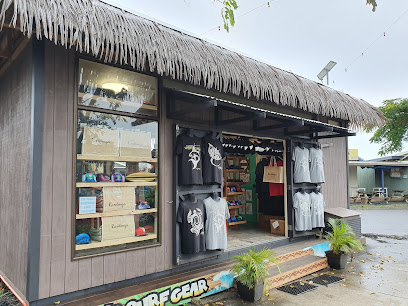
Island Craft Ltd
Discover unique handmade gifts at Island Craft Ltd in Avarua, where local artisans showcase the heart and soul of the Cook Islands.
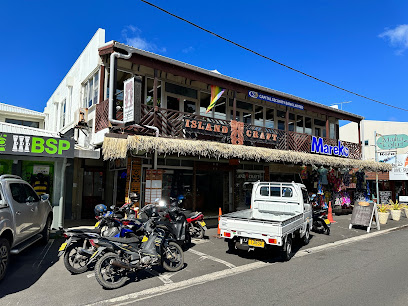
Atiu Island Coffee
Experience the delightful charm of Atiu Island Coffee, where every cup is brewed with love and island hospitality in a breathtaking setting.

Cooks Fudge Factory/ Perfumes of Rarotonga
Discover the sweet and fragrant treasures of Cooks Fudge Factory and Perfumes of Rarotonga in the heart of Avarua, a must-visit for every traveler.
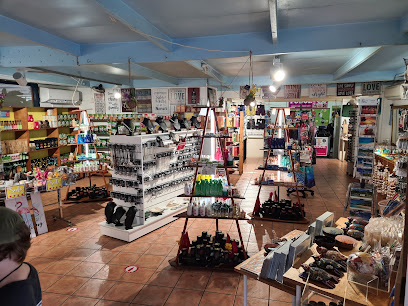
Rirei’s Store (The Heineken Store)
Explore Aitutaki through Rirei’s Store, your go-to spot for local groceries, unique Heineken merchandise, and authentic island culture.
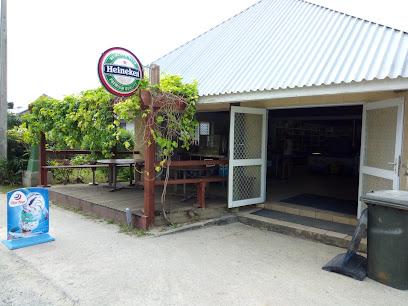
Perfumes of Rarotonga Factory
Explore the enchanting world of locally crafted fragrances at Perfumes of Rarotonga Factory in Avarua, a must-visit gift shop for unique souvenirs.
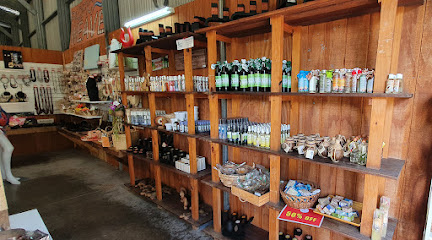
Atiu Villas
Discover tranquility at Atiu Villas, your perfect retreat on the picturesque Atiu Island in the Cook Islands, surrounded by lush gardens and rich culture.

Tuki's Pareu
Explore Tuki's Pareu in Avarua for authentic Cook Islands fashion, featuring unique handmade clothing and accessories inspired by the island's vibrant culture.
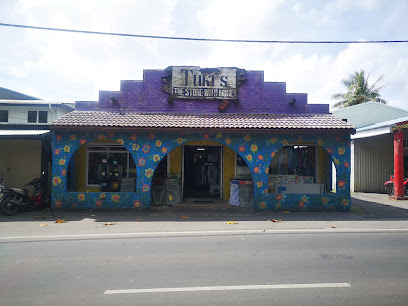
Mareko Island Creations
Explore Mareko Island Creations for authentic local crafts and unique souvenirs that capture the essence of the Cook Islands.
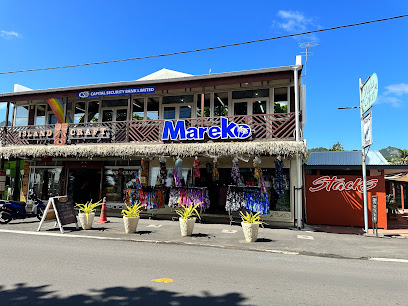
Centre Store
Explore the vibrant local flavors of Atiu at Centre Store, your go-to grocery for fresh produce and unique island products.

Rito Cook Islands
Explore Rito Cook Islands for a unique blend of health and beauty products in a serene tropical paradise, perfect for relaxation and rejuvenation.
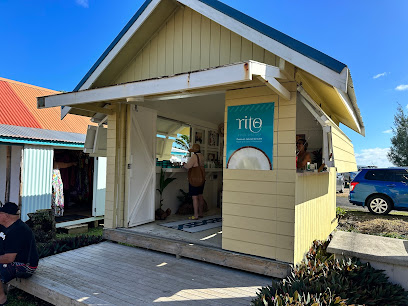
Tina & Co
Discover local snacks and essentials at Tina & Co, the friendly convenience store in the heart of Aitutaki's stunning west side.
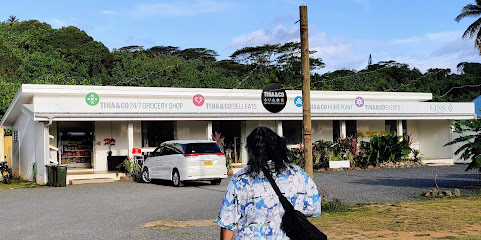
Turtles Sportswear
Discover unique island-inspired fashion at Turtles Sportswear in Avarua, where quality meets local craftsmanship.
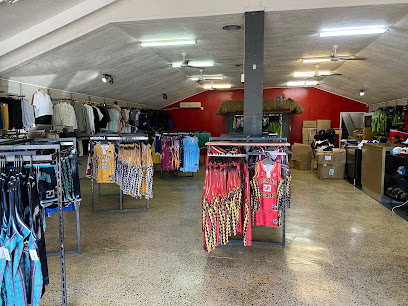
Atiu Coffee Factory
Experience the beauty of coffee production at Atiu Coffee Factory in the Cook Islands – a paradise for coffee lovers and nature enthusiasts alike.

Essential bars & hidden hideouts
Trader Jacks
Savor the vibrant flavors of the Cook Islands at Trader Jacks, where great food meets a lively atmosphere and breathtaking views.
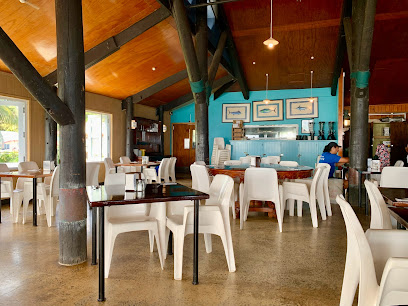
Charlie's Raro
Discover the vibrant vibes and exquisite flavors at Charlie's Raro, the ultimate bar and restaurant experience in the heart of the Cook Islands.
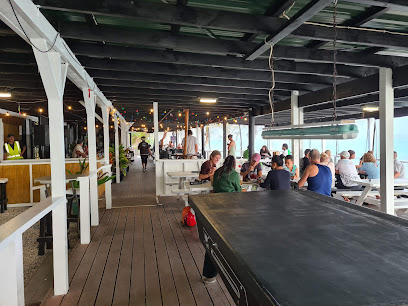
21.3 Vaiana's Bar & Bistro
Discover the vibrant atmosphere, delicious cuisine, and stunning beach views at Vaiana's Bar & Bistro in Avarua.
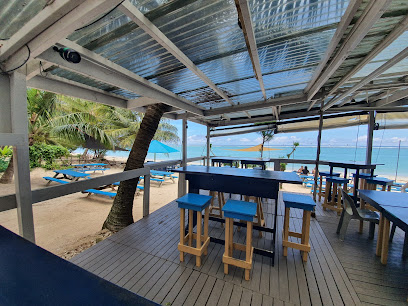
The Waterline Restaurant and Outrigger Beach Bar
Experience the stunning views and exquisite cuisine at The Waterline Restaurant and Outrigger Beach Bar in Rarotonga, a true gem for food lovers.
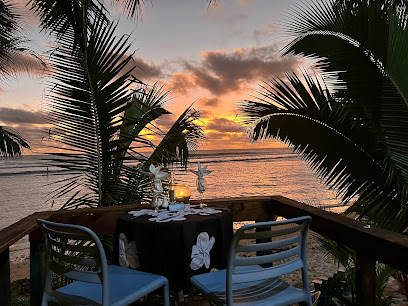
Shipwreck Hut Bar & Restaurant & Accomodation
Experience the best of Arorangi District at Shipwreck Hut Bar & Restaurant, where grilled delights meet live island music in a serene atmosphere.
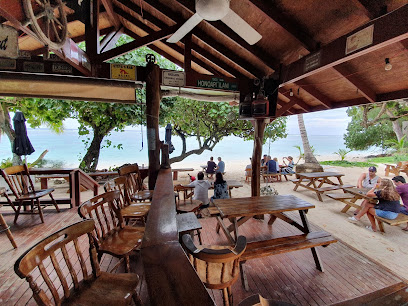
Kikau Hut
Discover the flavors of Rarotonga at Kikau Hut, a vibrant restaurant offering fresh local cuisine and breathtaking island views.
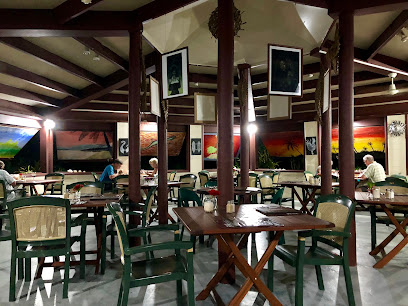
Wilsons Bar & Restaurant
Discover the lively charm and delicious flavors at Wilsons Bar & Restaurant in Arorangi District, your perfect getaway for dining and relaxation.
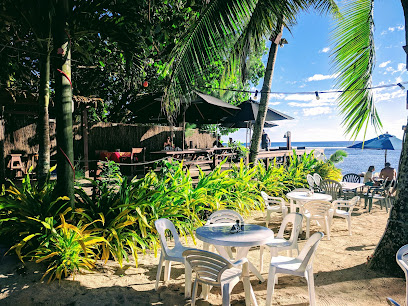
Rehab
Experience the vibrant nightlife of Avarua at Rehab, the ultimate bar and disco club for unforgettable nights of music and dance.
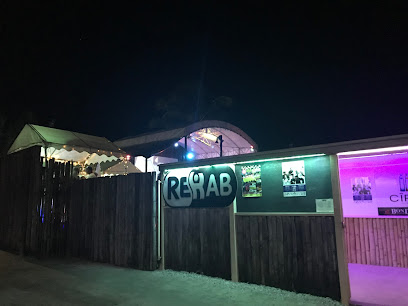
Tumunu Bar and Restaurant
Discover the vibrant atmosphere and authentic local flavors at Tumunu Bar and Restaurant in Rarotonga's Arorangi District.
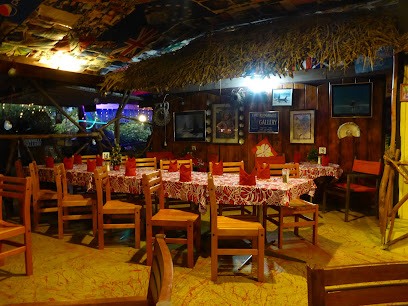
Blue Lagoon Restaurant & Bar
Experience the ultimate dining delight at Blue Lagoon Restaurant & Bar in Aitutaki, where local flavors meet stunning lagoon views.
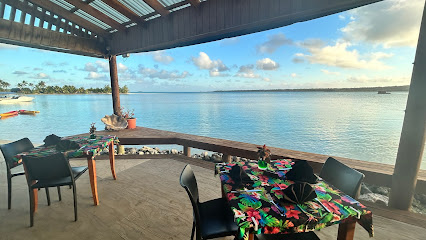
Mai’i Cafe & Bar
Discover the vibrant atmosphere of Mai’i Cafe & Bar in Takitumu District, where delightful drinks meet island charm for an unforgettable experience.
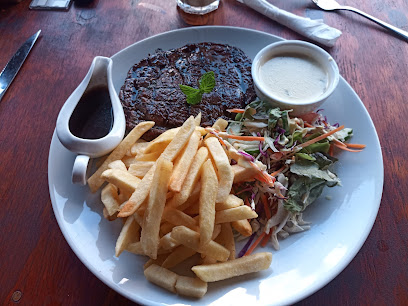
Hula Bar
Experience the vibrant nightlife of Rarotonga at Hula Bar, where delicious drinks, great music, and a lively atmosphere await you.
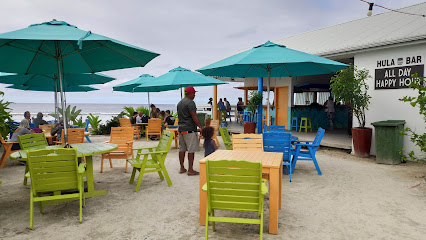
Roadhouse Bar & Restaurant
Discover the lively Roadhouse Bar & Restaurant in Arorangi District, where delicious food, refreshing drinks, and vibrant entertainment await.
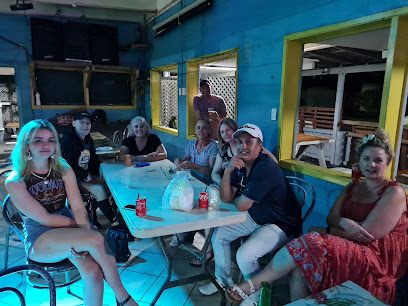
Atiu Island Coffee
Discover the aromatic flavors and relaxing atmosphere at Atiu Island Coffee, a hidden gem in the heart of Atiu Island.

Margaritas Bistro & Bar
Discover a culinary oasis at Margaritas Bistro & Bar, where local flavors meet global cuisine in the heart of Avarua.
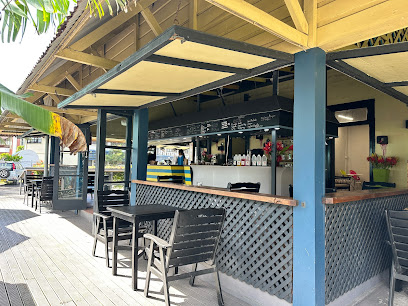
Local Phrases about Atiu
-
- HelloKia orana
[Kee-ah oh-rah-nah] - GoodbyeAere ra
[Eye-reh rah] - YesE
[Eh] - NoKare
[Kah-reh] - Please/You're welcomeAere mai
[Eye-reh my] - Thank youMeitaki
[May-tah-kee] - Excuse me/SorryTangiia
[Tahng-ee-ah] - How are you?Pehe koe?
[Peh-heh koh-eh] - Fine. And you?Mataora. Koe?
[Mah-tah-oh-rah. Koh-eh] - Do you speak English?E tatau koe i te reo Pukapuka?
[Eh tah-tow koh-eh ee teh reh-oh Poo-kah-poo-kah] - I don't understandKare au e ariki
[Kah-reh ow eh ah-ree-kee]
- HelloKia orana
-
- I'd like to see the menu, pleaseKa meitaki kia kite menu
[Kah may-tah-kee kee-ah kee-teh meh-noo] - I don't eat meatKare au e kai vai
[Kah-reh ow eh kah-ee vah-ee] - Cheers!Manuia!
[Mah-noo-ee-ah] - I would like to pay, pleaseKa meitaki kia u'i
[Kah may-tah-kee kee-ah oo-ee]
- I'd like to see the menu, pleaseKa meitaki kia kite menu
-
- Help!Ara!
[Ah-rah] - Go away!Aere atu!
[Eye-reh ah-too] - Call the Police!Tatau ki te Puraga!
[Tah-tow kee teh Poo-rah-gah] - Call a doctor!Tatau ki te tatau!
[Tah-tow kee teh tah-tow] - I'm lostI tuku au
[Ee too-koo ow] - I'm illKua tara au
[Koo-ah tah-rah ow]
- Help!Ara!
-
- I'd like to buy...Ka meitaki kia oki...
[Kah may-tah-kee kee-ah oh-kee...] - I'm just lookingTei au e matau
[Tay ow eh mah-tow] - How much is it?E hia te moni?
[Eh hee-ah teh moh-nee] - That's too expensiveTei te moni tika
[Tay teh moh-nee tee-kah] - Can you lower the price?E tatau koe e tuku i te moni?
[Eh tah-tow koh-eh eh too-koo ee teh moh-nee]
- I'd like to buy...Ka meitaki kia oki...
-
- What time is it?Ko te ora ki te aha?
[Koh teh oh-rah kee teh ah-hah] - It's one o'clockE tahi ora
[Eh tah-hee oh-rah] - Half past (10)E rua toru
[Eh roo-ah toh-roo] - MorningPōpō
[Poh-poh] - AfternoonArapō
[Ah-rah-poh] - EveningPō
[Poh] - YesterdayInapō
[Ee-nah-poh] - TodayĀnei
[Ah-nay] - TomorrowĀpōpō
[Ah-poh-poh] - 1Tahi
[Tah-hee] - 2Rua
[Roo-ah] - 3Toru
[Toh-roo] - 4Ā
[Ah] - 5Rima
[Ree-mah] - 6Ono
[Oh-no] - 7Fitu
[Fee-too] - 8Varu
[Vah-roo] - 9Iva
[Ee-vah] - 10Ngauru
[Ngar-roo]
- What time is it?Ko te ora ki te aha?
-
- Where's a/the...?Ei hea te...?
[Ay heh-ah teh...?] - What's the address?Ko te tuanga aha?
[Koh teh too-ah-ngah ah-hah] - Can you show me (on the map)?E tatau koe e tuatua mai ia au (i runga i te mapi)?
[Eh tah-tow koh-eh eh too-ah-too-ah my ee-ah ow (ee roo-ngah ee teh mah-pee)?] - When's the next (bus)?A te aha te tere (auta)?
[Ah teh ah-hah teh teh-reh (ow-tah)?] - A ticket (to ....)E tiki (ki ...)
[Eh tee-kee (kee ...)]
- Where's a/the...?Ei hea te...?
History of Atiu
-
Atiu, also known as 'Enuamanu' which means 'land of the birds,' was first settled by Polynesians around 1000 AD. The island's fertile soil and abundant natural resources provided a sustainable environment for the early settlers. They established a society based on agriculture, fishing, and intricate social structures, evidenced by ancient marae (sacred meeting grounds) that can still be visited today.
-
The first recorded European contact with Atiu was in 1777 by Captain James Cook, who named the island 'Wateoo.' However, it wasn't until the arrival of Christian missionaries in the 19th century that significant changes began to occur. The London Missionary Society arrived in 1823, leading to the widespread conversion of the islanders to Christianity. Churches were built, and traditional practices were replaced with new religious customs.
-
In the late 19th century, the Cook Islands, including Atiu, became a British protectorate. This period saw the island's integration into the broader colonial administration, impacting local governance and economic practices. In 1901, the Cook Islands were annexed to New Zealand, bringing about further administrative changes and development projects aimed at modernizing the island.
-
During World War II, Atiu played a strategic role in the Pacific theater. The island was used as a refueling stop for Allied aircraft, and local men were recruited to serve in various capacities. The post-war period saw significant migration of Atiuans to New Zealand and other countries, seeking better economic opportunities. This migration had a lasting impact on the island's demographic and cultural landscape.
-
In recent decades, there has been a strong movement to revive and preserve traditional Atiuan culture. Efforts have been made to document and teach the native language, restore ancient marae, and celebrate traditional festivals and arts. Tourism has also become an important part of Atiu's economy, with visitors drawn to its rich history, pristine environment, and vibrant cultural heritage.
Atiu Essentials
-
Atiu is accessible via air travel. The closest international gateway is Rarotonga International Airport (RAR) on the main island of Rarotonga. From Rarotonga, you can catch a domestic flight to Atiu, operated by Air Rarotonga. The flight duration is approximately 45 minutes. It is advisable to book flights in advance, especially during peak tourist seasons.
-
Once on Atiu, the primary mode of transportation is via rental scooters, bicycles, or walking. There are no public buses or taxis, but some accommodations offer shuttle services. Renting a scooter is a popular option and provides the flexibility to explore the island at your leisure. The island’s roads are generally unpaved, so drive carefully.
-
The official currency in the Cook Islands is the New Zealand Dollar (NZD). Credit cards are accepted at some larger accommodations and restaurants, but it is essential to carry cash for smaller establishments and local markets. There are no ATMs on Atiu, so ensure you withdraw enough cash before departing from Rarotonga.
-
Atiu is considered a safe destination for tourists, with a low crime rate. Standard precautions should still be taken, such as securing personal belongings and avoiding isolated areas at night. There are no specific neighborhoods with high crime rates targeting tourists. Always stay aware of your surroundings and respect local customs.
-
In case of an emergency, dial 999 for immediate assistance. Atiu has a medical clinic that can handle minor health issues, but for serious emergencies, evacuation to Rarotonga may be necessary. It is highly recommended to have travel insurance that covers medical emergencies and evacuation. Local police are also available for assistance.
-
Fashion: Do dress modestly, especially when visiting local villages and cultural sites. Avoid wearing beachwear away from the beach. Religion: Do respect local customs and traditions, and ask for permission before entering sacred sites. Public Transport: As there is no public transport, plan your travel accordingly. Greetings: Do greet locals with a smile and a friendly 'Kia Orana'. Eating & Drinking: Do try local delicacies and accept food offerings graciously. Don’t refuse hospitality, as it is considered impolite.
-
To experience Atiu like a local, consider joining a guided eco-tour to learn about the island's flora, fauna, and unique limestone caves. Engage with locals and participate in traditional activities such as weaving or attending a local church service. Don't miss visiting the Atiu Coffee Factory to taste locally-grown coffee, and take a tour of the Tumunu (bush beer) drinking clubs for a unique cultural experience.
Trending Landmarks in Atiu
-
Punanga Nui Market
-
Muri Night Markets
-
Te Vara Nui Village
-
Maire Nui Gardens and Cafe
-
Aitutaki
-
Raro Buggy Tours
-
Ocean Toa Cook Islands
-
Te Ara Cook Islands Museum of Cultural Enterprise
-
Wigmore's Waterfall
-
Highland Paradise
-
Teking Lagoon Cruises
-
Piraki Lookout
-
Cook Islands National Museum
-
Atiu Island Coffee
-
Te Rua Manga
Nearby Cities to Atiu
-
Things To Do in Ngatangiia
-
Things To Do in Muri
-
Things To Do in Avarua
-
Things To Do in Nikao
-
Things To Do in Avatiu
-
Things To Do in Takitumu
-
Things To Do in Arorangi
-
Things To Do in Maupiti
-
Things To Do in Bora Bora
-
Things To Do in Raiatea
-
Things To Do in Huahine
-
Things To Do in Moorea
-
Things To Do in Papeete
-
Things To Do in Tahiti
-
Things To Do in Tetiaroa






